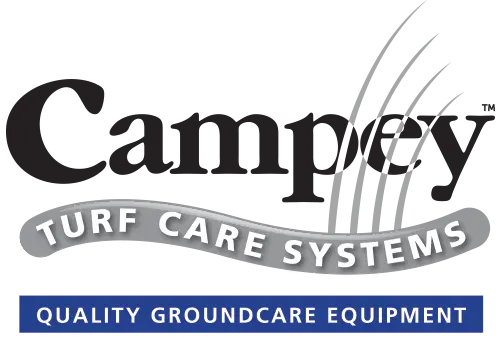We have always been an exporting nation, casting the net far and wide and despite the contrasting views of Brexiteers and remainers, the desire to trade with our fellow men and women across the entire globe is so deeply ingrained in UK businesses, that the only question mark is do we always get it right?
One of the most successful UK exporters of sports turf machinery is Campey Turf Care Systems, who this year is celebrating 30 years of overwhelming success. Managing director Richard Campey has taken a small machinery dealership and turned it into a global force, becoming Europe’s largest independent grounds care machinery dealer, supplying equipment to countries in most parts of the world including the most difficult markets to penetrate such as Asia, the Middle East and interestingly America.
In the past four weeks alone, Campeys has exhibited at shows in Denmark, Germany, Italy, France and the USA. The company has supplied products such as Dakota spreaders, KORO® FieldTopMaker® to Denmark, a KORO® TopDrain® to a golf course in Switzerland, the Air2G2’s throughout Europe, as far as Australasia and to South Africa, a Koro® Recycling Dresser to the Montgomerie Maxx Royal golf course in Turkey, Imants ShockWaves to Finland, and most notably the KORO® FieldTopMaker® for work on the Rio Olympic sites, to name but a fraction of the equipment exported around the world.
What’s the key to this success? Richard explains that there are fundamental issues which have to be addressed to get it right.
“Firstly you have to be absolutely clear about the products you are going to market. One of the strengths of Campeys is the ability to find that niche product, and bring it to market. A very good example of this is the GT Air2G2 Air Injection machine. We discovered it in the US and now export it all around the world (excluding North & South America). It’s a unique aeration product which has found a clear place in a market we already thrive in.
Understanding exactly what your potential customer needs and why is crucial. To achieve this you have to know the industry you are in thoroughly yourself and we know the natural turf sports industry inside out. But it’s not enough to know what goes on in the UK, you have to know the market you are exporting to and this requires local knowledge.”
Richard continues “I believe there are four main factors that are essential to create a winning formula to successfully break into a new market in a different country:
1) Choosing the right partnerships. In Europe, the Middle East, Asia, and South Africa, we have developed a strong network of dealers, supplied with products of the highest quality of manufacture and supported by marketing through shows, demonstrations and seminars which reach every corner of every country we work in.
Our push into the US is strengthened by the partnership between ourselves and manufacturers Imants. Having the expertise, back-up and service of a reputable manufacturer with existing contacts in the country you are looking to export too, is a massive advantage. The Campey Imants partnership goes from strength to strength with both companies actively marketing at shows and participating in conferences in America to promote the Imants and Koro® by Imants range of products, through our North American importer, Aqua-Aid.
2) Investing in good people. We have many excellent product specialists who are dedicated to the region we look to export to. We have a good team of UK product specialists that are also tasked with giving additional support to our network of European dealers and make regular visits to Europe, to provide that connection between them and the UK base. David Harrison for instance is our man in Asia. He has vast local knowledge and a network of contacts formed over many years. He knows the dealers, the greenkeepers, the groundsmen and the vagaries of the local customs. His experience can meet the challenges centrally and internationally, balancing the needs on the ground and the logistics of providing goods and services thousands of miles from the UK.
3) Planning. Having a long term plan, at least five to ten years. You have to consider the impact the investment in developing a new market will have on the company and be prepared for it. Cash flow, currency fluctuations, transport costs/delays/local and global political pressures, promotional material, translations, all investments and all influences which will impact on the business as a whole and have to be factored in. Which in turn is also backed up by the staff that are based at our head office in Marton, Cheshire – for example our spare parts department which at any one time will carry a stock of spare parts to the value of £500,000 which can be despatched within 24 hours worldwide.
4) Protecting your product lines. Competition is fierce wherever you market your products. When exporting new and innovative products, you have to protect against counterfeit goods and blatant copying. We ensure patents are applied for domestically and rolled out across the world. It is then imperative that you enforce the patent if it is breached and have the determination and resources to do so.
In conclusion Richard reflects “Despite all of the potential pitfalls, Campeys has overcome them and learned many a lesson on the way. We have earned a reputation for offering practical advice and superb aftercare service and deservedly so. Whether good fortune or good judgement – and I would like to believe it’s a healthy combination of both, we export as a new equipment dealer for some of the most respected grounds care machinery manufacturers in our industry, including Dakota, Imants, Koro, Campey, Vredo, Votex, VGR and GT Air 2G2 injector and it doesn’t get much better than that!”
Article courtesy of Turf Business.


